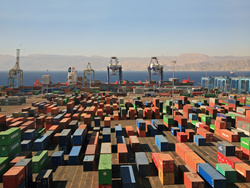
Such healthy performance is an excellent indicator for the U.S. economy at large, but it has also come at the price of a paradigm shift in what it means to be a manufacturing worker in America.
The Globalization Factor
The advent of globalization means that GM is no longer just competing against Ford — Americans are competing against manufacturing workers abroad, whose lower hourly rates simply can’t be matched. With free trade agreements often bolstering the success of these foreign workforces, the only solution for the American brand of manufacturing has been to adapt.
The modern U.S. manufacturing job is no longer about working on the factory floor; instead, most U.S. jobs in production have transitioned to offices. Manufacturing positions requiring a college degree or trade skill are the strongest factor in keeping jobs here in the U.S., because educated workers can’t be so easily outsourced. By elevating the value of the average worker through education and training, U.S. manufacturing plants once again become the preferred place to do business in a world market, and American labor avoids the problem of competing with foreign workers altogether.
Embracing the Future of American Manufacturing
As with any big change, this notion is bound to be met with some resistance, and it will require action now on many levels in order to be successful in the future. Manufacturing companies and labor unions will need to work together to redefine the American workforce. Some important factors and changes will include:
- Implementing advanced manufacturing techniques
- Reducing material and overhead costs
- Encouraging more well-trained employees
If the ISM is to be believed, a new boom era of American manufacturing is on the horizon — the question is simply whether or not we will continue to embrace the evolution of the industry. At B.L. Duke, we work on the cutting edge of the recycling, hauling, and demolition industry, employing the latest machinery and techniques to achieve the most sustainable, eco-friendly solutions for our clients. Contact us today for information about any of the

